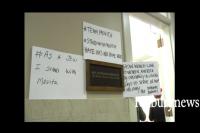As released by Attorney General Kathleen Kane.
lSunday, March 16, 2014.
Attorney General Kane releases statement on Philadelphia Inquirer story regarding Case File No. 36-622.
Statement from Pennsylvania Attorney General Kathleen G. Kane:
"The allegations made by several cowardly anonymous sources in today's Philadelphia Inquirer paint an inaccurate and sensational version of the details and timeline of events related to Case File No. 36-622. The real truth is that this investigation was not only deeply flawed, but unraveled long before I was elected and then took the oath of office.
"The majority of the work, including more than 91 percent of the recordings by a confidential informant, took place 18 months prior to my inauguration, through three former Attorneys General. Additionally, when prosecutors dismissed more than 2,000 serious charges of fraud that alleged their informant stole $430,000 meant for poor children and seniors, they crippled the chance of this case succeeding in prosecution. Despite the case originating in 2010, this agreement to drop the charges was signed just 24 days after I was elected and weeks before I was sworn in.
"After a detailed review, we learned even more disturbing information regarding this case, including that there may have been a racial focus to the targets of the investigation, improper reporting, inadequate resources and inadmissible evidence.
"In addition, extremely alarming flaws were found in the management of the prosecution, including the failure of prosecutors to disclose the investigation to key immediate supervisors. Then-Chief of Staff Bruce Beemer was never informed of the investigation until I first learned of it on Jan. 17, 2013.
"Furthermore, I do not have any animosity towards the lead prosecutor of this case. I do not know the former prosecutor any more than I know the individuals targeted in this investigation. If the former prosecutor believes the case is strong enough to move forward, he currently has concurrent jurisdiction in public corruption matters.
"Prosecuting political corruption remains a top priority of my administration. The notion of elected officials accepting bribes or cash turns my stomach. It is unfortunate that the investigation was so botched that this case was found unable to be prosecuted not just by career professionals in my office but both federal authorities and Dauphin County District Attorney Edward Marsico, a Republican.
"I stand solidly behind the decisions of my administration and assure the people of Pennsylvania that my office holds itself to a much higher standard of professionalism, prosecutorial discretion and respect for the civil liberties of all Pennsylvanians than apparently was displayed over the course of this investigation.
"My record speaks for itself that prosecutions have no political agenda. Of the 11 public corruption cases we have brought so far, the majority involve Democrats. I will not sit back and allow lies from those who seek to destroy the public's trust in me or my office."
Background from Pennsylvania Office of Attorney General (information provided to the Philadelphia Inquirer):
The Determination that Case File No. 36-622 is Not Prosecutable
Office of Attorney General (OAG) Case File No. 36-622 was a public corruption investigation conducted by the prior administration at OAG which focused on members of the State General Assembly (specifically members of the "Black Caucus") for alleged violations of the Election Code, 25 Pa.C.S. §3254, the State Ethics Act, 65 Pa.C.S. §1103, and the Bribery Statute, 18 Pa.C.S. §4701.
The investigation utilized a Confidential Informant (CI) and was conducted primarily by former OAG personnel who are now employed by the Philadelphia District Attorney's Office (PDAO) in its recently formed Public Corruption Unit. Generally speaking, the Black Caucus members were alleged to have impermissibly accepted cash payments from the CI.
Upon Attorney General Kane being sworn into office on January 15, 2013 all significant active matters then existing at OAG ? both criminal and civil ? were evaluated and determinations were made with respect to future handling. Regarding OAG Case File No. 36-622, the evaluation was performed by the Senior Counsel to the Attorney General (who also currently serves as Chief of OAG's Criminal Prosecutions Section and previously served as Chief of Staff to former Attorney General Linda Kelly), and included:
i. a comprehensive examination of one hundred and thirteen (113) consensual recordings between the CI and various state legislators (and certain other public officials) from the Philadelphia area;
ii. a review of the paper files, agent reports, consensual recording indexes, and other materials dealing with the subject case file number;
iii. a review of a special computer drive which housed file materials in electronic format; and
iv. a review of four (4) file boxes of materials regarding the OAG Case File that pertained to criminal activity committed by the CI.
Following completion of his evaluation, the Senior Counsel to the Attorney General reported to Attorney General Kane that: "[a] prosecution [of OAG Case File No. 36-622] is not advisable or warranted." The reasons for the Senior Counsel's determination were as follows:
- The CI was provided a Cooperation Agreement so extraordinary and lenient that it effectively undermined the CI's credibility and that of OAG for having agreed to it. Specifically, the CI was absolved of any responsibility for a massive fraud ? involving over 2,000 separate charges ? that the CI perpetrated on numerous governmental entities. The fraud involved the theft of a significant amount of money that the CI converted for his personal use, and which deprived the poor and needy of assistance under a certain government assistance program.
- The consensual recordings are the only evidence of alleged wrongdoing by the various state legislators and the CI is the only witness that can offer testimony regarding such recordings on behalf of the prosecution. No other supporting or corroborating evidence exists. As discussed above, the Cooperation Agreement casts a cloud over the credibility of the CI and the entire investigation and makes it appear that the Commonwealth has bought and paid for the CI's testimony many times over.
- Quality control measures were wholly lacking with respect to the consensual recordings. The evidence developed was inconsistent, underdeveloped and lacked focus. More importantly, the evidence failed to establish the critical criminal element of "quid pro quo" or cash payments directly in exchange for official action.
- Prior to the consensual recordings starting, no effort was made by the OAG Agent and OAG Attorneys directing the investigation to develop any sort of reasonable suspicion or criminal predicate. This approach does not comport with the investigative "best practices" employed by most law enforcement agencies.
- Other traditional investigative measures commonly utilized in public corruption investigations such as submission of the case to a Statewide Investigating Grand Jury were never utilized. Therefore, there were never any documents or electronic transmissions subpoenaed, or witnesses interviewed and/or sworn to testify.
- Adequate resources were not dedicated to the investigation. A single OAG Agent spent hundreds of hours alone with the CI with very little supervision or control. The quality of the OAG Agent's reports was lacking.
- The case had been dormant for an extended period of time. Of the one hundred and thirteen (113) consensual recordings made by the CI during the investigation, thirty (30) were conducted from October to December 2010, seventy three (73) were conducted from January to June 2011, three (3) ? one each ? were conducted in July, August and November of 2011, and seven (7) were conducted in April 2012. As such, no significant activity had occurred in the case during the eighteen (18) month period immediately preceding the commencement of Attorney General Kane's Administration.
- The OAG Agent who managed the CI was debriefed by current senior OAG executive staff members prior to his leaving OAG for employment at PDAO (to join again with the former OAG Attorneys who had previously directed the investigation). During the debrief, the OAG Agent indicated that he was instructed by his supervising OAG Attorney to focus only on members of the General Assembly's Black Caucus and that when he had information of potentially illegal acts by white members of the General Assembly he was specifically told not to pursue it. The OAG Agent also stated that his supervising OAG Attorney promised him a promotion and cash bonus for working on the investigation.
- Statements about limiting the focus of the investigation to only members of the General Assembly's Black Caucus were also made by the CI to federal law enforcement officials.
- The extraordinarily lenient Cooperation Agreement which absolved the CI of criminal liability for his massive fraud was seemingly done in an expedited manner designed to strip Attorney General Kane of any ability to exercise her professional judgment or control. Specifically, the OAG Attorney directing the investigation executed the Cooperation Agreement on OAG's behalf on November 30, 2012, twenty four (24) days after Attorney General Kane's election on November 6, 2012, and forty five (45) days before she assumed office. Adding to that questionable activity is the fact that the OAG Attorney directing the investigation did not bring the Cooperation Agreement to the attention of his immediate supervisor (the then Criminal Division Executive Deputy Attorney General) until January 4, 2013, which notably happened to be the supervisor's last day at OAG prior to his retirement.
- Federal law enforcement officials with knowledge of Case File No. 36-622 have shared with current members of the OAG executive staff their opinion that the case is flawed and not prosecutable.
- In August of 2013, OAG requested that the Dauphin County District Attorney's Office review Case File No. 36-622 and provide a second opinion on whether the case could proceed. As in the case of federal authorities, the Dauphin County prosecutors also concluded that the case could not be prosecuted.
Politics and Party Affiliation Have No Role in OAG's Prosecutorial Decision Making
Politics and party affiliation have no bearing on charging decisions made by OAG. If sufficient and credible evidence of criminal conduct exists and the investigation of such conduct is properly handled, charges will be brought. It is as simple as that and goes without exception. Any objective assessment of OAG's record in fighting public corruption under Attorney General Kane's leadership confirms this. Over the past 14 months OAG:
- filed charges against eight men in the Turnpike "Pay to Play" scheme (every public official charged was a Democrat) (March 13, 2013);
- filed charges of terroristic threats, simple assault and intimidation of witnesses against Beaver County Sherriff George David (Democrat) (March 25, 2013);
- filed charges of intimidating a witness and instructing a witness to withhold information from law enforcement against Scott Township Police Chief James Romano (April 24, 2013);
- filed charges of interception of wire, electronic or oral communications against Luzerne County Controller Walter Griffith (Republican) (May 17, 2013);
- filed theft and other charges against Washington County Court of Common Pleas Judge Paul Pozonsky (Republican / Democrat) (May 23, 2013);
- filed tampering with records and obstruction charges against Magisterial District Court Judge Rita Arnold (Republican / Democrat) (April 23, 2013);
- filed theft charges against Department of Conservation and Natural Resources employee Marylinda Freyermuth (August 16, 2013);
- filed theft charges against former Department of Public Welfare employee Bryon Noon (September 11, 2013);
- filed a false report charge against Philadelphia Assistant District Attorney Lynn Nichols (October 4, 2013);
- filed drug charges against Ambridge Police Officer Andrew Wanton (December 19, 2013); and
- filed theft and conflict of interest charges against State Senator LeAnna Washington (Democrat) (March 12, 2014).
Target Statistics - 113 Tape Recording Sessions
- 111 Tapes / 98.2%: Minority Targets
- 108 Tapes / 95.5%: African-American targets
- 3 Tapes / 2.7%: Latino targets.
- 2 Tapes / 1.3% : White targets.
*NOTE: One of the white "targets" is on tape merely because he happens to be in a room with two black targets. The other white target is discussing the acceptance of baseball tickets from the CI.
Photo/Natalie Cake

